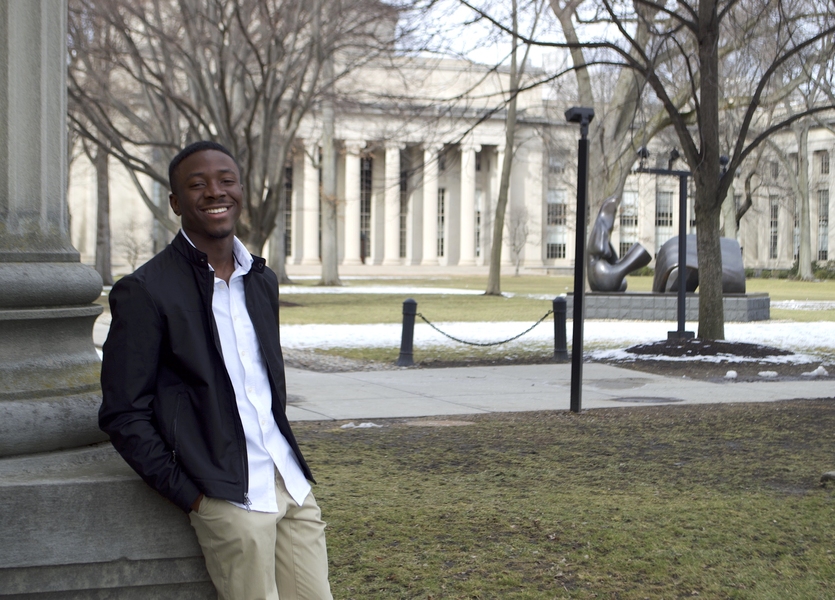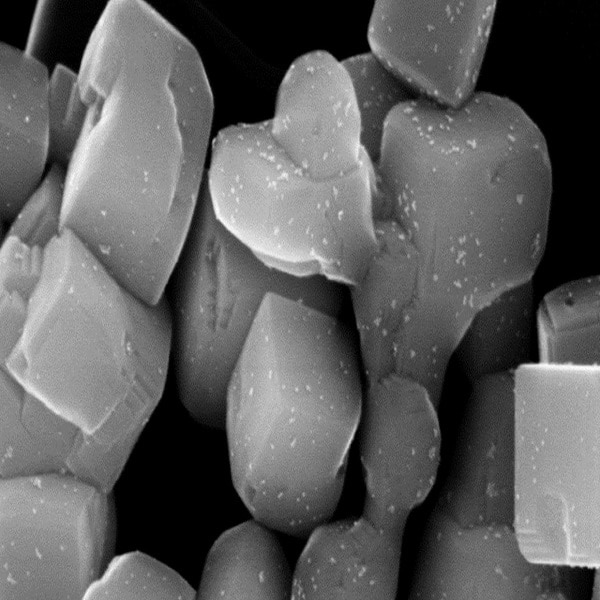A desire to make meaningful contributions to society has influenced Runako Gentles’ path in life. Gentles grew up in Jamaica with a supportive extended family that instilled in him his connection to his faith and his aspiration to aim for greatness.
“While growing up, I was encouraged to live a life that could potentially bring about major positive changes in my family and many other people’s lives,” says the MIT junior.
One of those pathways his parents encouraged is pursuing excellence in academics.
Gentles attended Campion College, a Jesuit high school in Jamaica for academically high-achieving students. Gentles was valedictorian and even won an award “for the member of the valedictory class who most closely resembles the ideal of intellectual competence, openness to growth, and commitment to social justice.”
Although he did well in all subjects, he naturally gravitated toward biology and chemistry. “There are certain subjects people just make sense of material much faster, and high school biology and chemistry were those subjects for me,” he says. His love of learning often surprised friends and classmates when he could recall science concepts and definitions years later.
For several years Gentles wanted to pursue the field of medicine. He remembers becoming more excited about the career of a surgeon after reading a book on the story of retired neurosurgeon Ben Carson. During his advanced studies at Campion, he attended a career event and met with a neurosurgeon who invited him and other classmates to watch a surgical procedure. Gentles had the unique learning experience to observe a spinal operation. Around that same time another learning opportunity presented itself. His biology teacher recommended he apply to a Caribbean Science Foundation initiative called Student Program for Innovation, Science, and Engineering (SPISE) to explore careers in science, technology, engineering, and math. The intensive residential summer program for Caribbean students is modeled after the Minority Introduction to Engineering and Science (MITES) program at MIT. Cardinal Warde, a professor of electrical engineering at MIT who is also from the Caribbean, serves as the faculty director for both MITES and SPISE. The program was Gentles’ first major exposure to engineering.
“I felt like I was in my first year of college at SPISE. It was an amazing experience and it helped me realize the opportunities that an engineering career path offers,” Gentles says. He excelled in the SPISE program, even winning one of the program’s highest honors for demonstrating overall excellence and leadership.
SPISE was profoundly impactful to Gentles and he decided to pursue engineering at MIT. While further exploring his engineering interests before his first year at MIT, he remembers reading an article that piqued his interest in industry sectors that met basic human and societal needs.
“I started thinking more about engineering and ethics,” says Gentles. He wanted to spend his time learning how to use science and engineering to make meaningful change in society. “I think back to wanting to be a doctor for many years to help sick people, but I took it a step further. I wanted to get closer to addressing some of the root causes of deaths, illnesses, and the poor quality of life for billions of people,” he says of his decision to pursue a degree in civil and environmental engineering.

Gentles spent his first semester at MIT working as a remote student when the Covid pandemic shut down in-person learning. He participated in 1.097 (Introduction to Civil and Environmental Engineering Research) during the January Independent Activities Period, in which undergraduates work one-on-one with graduate students or postdoc mentors on research projects that align with their interests. Gentles worked in the lab of Ruben Juanes exploring the use of machine learning to analyze earthquake data to determine whether different geologic faults in Puerto Rico resulted in distinguishable earthquake clusters. He joined the lab of Desiree Plata in the summer of his sophomore year on another undergraduate research opportunity (UROP) project, analyzing diesel range organic compounds in water samples collected from shallow groundwater sources near hydraulic fracking sites in West Virginia. The experience even led Gentles to be a co-author in his graduate student mentor’s abstract proposal for the American Geophysical Union Fall Meeting 2022 conference.
Gentles says he found the Department of Civil and Environmental Engineering a place for him to have the big-picture mindset of thinking about how technology is going to affect the environment, which ultimately affects society. “Choosing this department was not just about gaining the technical knowledge that most interested me. I wanted to be in a space where I would significantly develop my mindset of using innovation to bring more harmony between society and the environment,” says Gentles.
Outside of the classroom, learning acoustic guitar is a passion for Gentles. He plays at social events for Cru, a Christian community at MIT, where he serves as a team leader. He credits Cru with helping him feel connected to a lot of different people, even outside of MIT.
He’s also a member of the Bernard M. Gordon-MIT Engineering Leadership Program, which helps undergraduates gain and hone leadership skills to prepare them for careers in engineering. After learning and exploring more UROPs and classes in civil and environmental engineering, he aspires to hold a position of leadership where he can use his environmental knowledge to impact human lives.
“Mitigating environmental issues can sometimes be a very complicated endeavor involving many stakeholders,” Gentles says. “We need more bright minds to be thinking of creative ways to address these pressing problems. We need more leaders helping to make society more harmonious with our planet.”
Source: MIT










